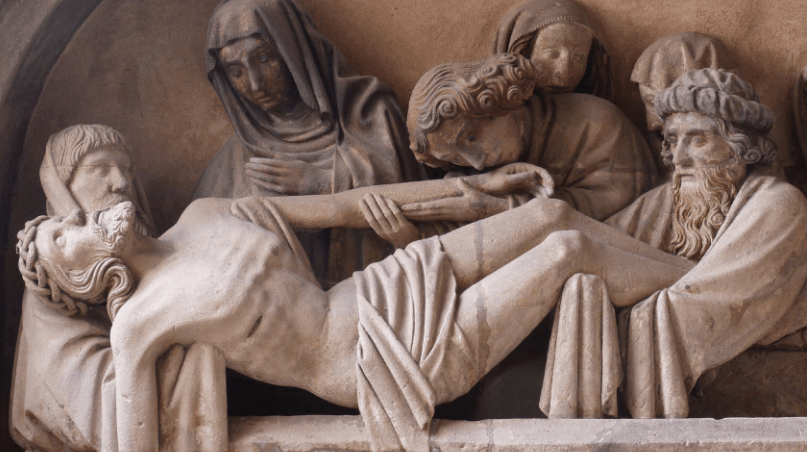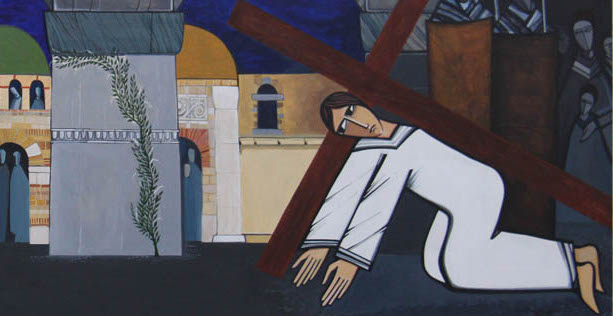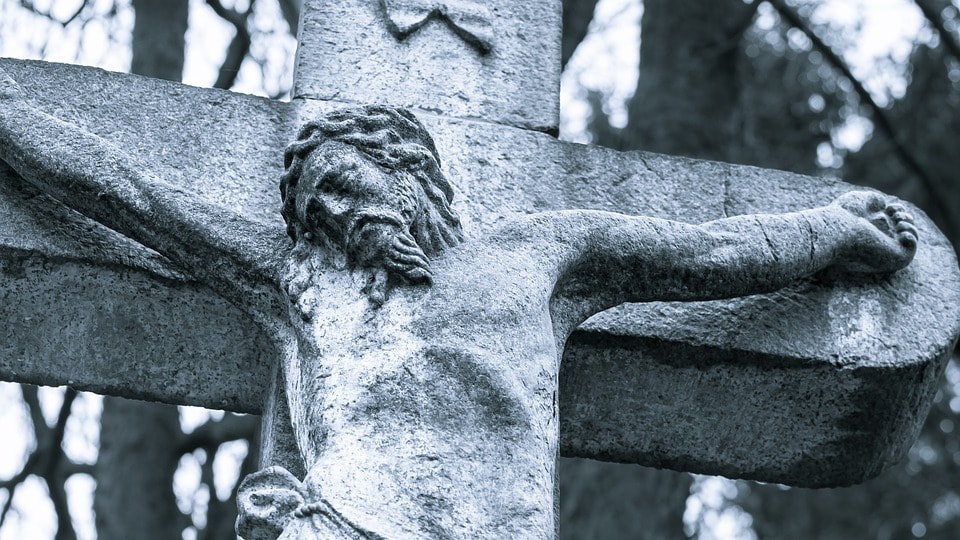A growing rumble of voices fills the air like the crashing of waves. A handful of leaders have managed to stoke the fires of rage. A mob emerges into the public arena. Politicians take their places on the stage. They hear shouts turn into a chant, “Crucify him!” Jesus stands alone. Silent.
This is a political scene.
If it happened today, it would involve activists, politicians, lawyers, and esteemed judges. Cameras would be flashing. Small red lights blink to indicate it is all being recorded for the public record. The media would take their seats. The grumble of activists against this threat to the community would attempt to hijack the proceedings, and surprisingly, they succeed. The court of law stands in tension with the court of public opinion.
The accused has no representation. No support. No one at his side. All of his advocates have abandoned him. He answers no questions. The politicians worry about their careers and disrupting the status quo. The lawyers rack their brains about laws that can bring this to an end that is just fair enough. The judge is torn, but does not want to incite a firestorm of backlash. A guilty verdict comes down. The violent grumbles erupt into applause, the threat of riots gives way to celebration. The court of public opinion, manipulated by a vocal minority, has won.
Pilate can’t comprehend how it is that through the condemnation of an innocent man, a guilty murderer goes free.
Before the shouts of “Crucify him!” subsided, mediation was attempted. The governor of Judea, Pontius Pilate, found himself in an unprecedented bind. He served an unpredictable Emperor. He was held on a short leash, and his career could not afford any public discord. It’s also clear, from the gospel accounts, that Pilate did not believe Jesus was guilty and that his wife even had a dream about Jesus’ innocence. Pilate was torn between conviction and career.
Suddenly, Pilate has a stroke of genius. There was a tradition of releasing a Jewish prisoner during the Passover. These prisoners had already received a death sentence. Much like the President in the United States, Pilate was in the business of commuting some of these sentences. He asks the instigators of this mock trial, “Who should I release? Barabbas or Jesus?”
Pilate must have thought this was a no brainer. Barabbas was a notorious prisoner. As a Revolutionary, he was involved in instigating a riot. He had murdered someone or several someones in the process. His guilt was undeniable.
Pilate surely thought that the stark contrast between Barabbas and Jesus would cut through the clouds of chaos as a brilliant light of reason. It was the perfect solution. Yet to his surprise, the crowds shout, “Release Barabbas.”
With the same pomp and show as signing an executive order, Pilate condemns Jesus to death. It’s official.
Pilate can’t comprehend how it is that through the condemnation of an innocent man, a guilty murderer goes free.
It’s the mystery of the cross.
Image © Copyright John Salmon
Stations
During the weeks of Lent, St. Peter’s writers are reflecting on the Stations of the Cross. These fourteen moments from the last days of Jesus’ life offer us an opportunity to consider where we would have been in this story – in the crowd? Waiting in the courtyard? At the foot of the Cross? It’s our prayer that you will find these posts meaningful food for thought over the next few weeks.




